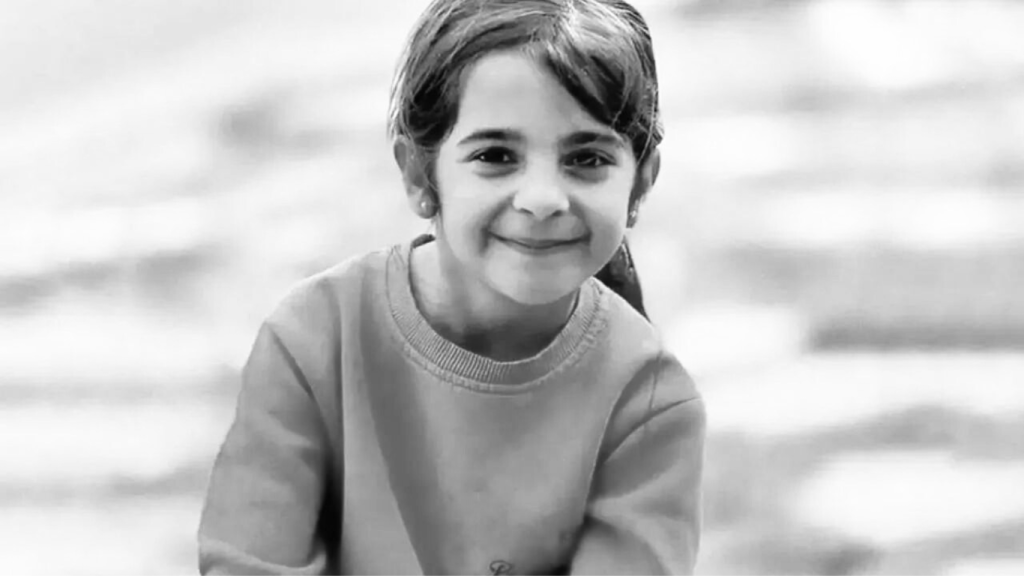

8-year-old Narin Güran was found dead in the southeastern city of Diyarbakır in Türkiye after 19 days of search that captivated the country. 24 suspects have been taken into custody, including her immediate family members. Narin’s death is not an isolated incident. In the first half of 2024 alone, at least 343 children died due to preventable causes.
Türkiye mourns 8-year-old Narin Güran, whose lifeless body was found in the southeastern city of Diyarbakır 19 days after her disappearance, a case that has gripped the country and reignited debates about child safety. Narin’s case is not an isolated incident. In the just first half of 2024, 343 children died due to preventable causes in Türkiye.
On August 21, 2024, Narin disappeared while walking from a local Quran course, a common after-school activity for many children in this predominantly conservative area. What followed was a 19-day search that captivated the nation.
Despite an extensive search operation involving over 12,000 vehicles, 130 interviews, and 11,000 acres of land examined, Narin’s body was discovered just 3 kilometers from her village on September 8. Her body was wrapped in a sack near a stream.
24 suspects have been taken into custody, including her immediate family members. Her uncle, Salim Güran, the village headman, has been charged with “intentional killing” and “deprivation of liberty” based on DNA evidence.
Investigation is ongoing, the cause of death still unknown.
Narin’s murder, Türkiye’s struggle
The grim find has become a haunting symbol of Türkiye’s struggle to protect its most vulnerable citizens, igniting fierce debate about child safety measures in the country. Narin’s case is not an isolated incident. It reflects systemic failures in child protection across Türkiye.
Just in 2018, 8-year-old Eylül Yağlıkara had disappeared, and her murder prompted similar soul-searching and calls for reform. In the same year, four-year-old Leyla Aydemir went missing. She was found 18 days after by a stream just 3 kilometers away from her village.
According to a recent report by the FISA Child Rights Center, at least 343 children lost their lives due to preventable causes in just the first half of 2024.
The report paints a disturbing picture: 95 children died in traffic accidents, 32 by suicide, and 33 in workplace incidents – a stark reminder that child labor remains a pressing issue in the country. Perhaps most alarmingly, 23 children fell victim to various forms of violence.
The Turkish government, facing mounting pressure, has pledged to hold those responsible for Narin’s murder accountable.
“We will make sure that those who murdered Narin will be held accountable before justice,” President Tayyip Erdoğan said.
System fails to protect children
However, women’s rights organizations argue that these promises fall short. Protests have erupted across major cities, with demonstrators demanding comprehensive reforms.
Women’s rights organizations have pointed to rising conservatism in Türkiye as a contributing factor to these tragedies.
They argue that ruling AKP government’s recent actions, such as withdrawing from the Istanbul Convention (a human rights treaty aimed at preventing violence against women) and policies allowing animal euthanasia, have created an environment where vulnerable groups are increasingly at risk.
During a protest in Istanbul, Fidan Ataselim, General Secretary of the Women’s Platform to Stop Femicides, criticized the government’s family-centric policies:
“You constantly put family-oriented policies on the agenda. Here’s your family! Where is the woman? The woman has no name! Where is the child? The child has no name!” she said.
The protesters, carrying banners reading “Narin’s killer is your sacred family order,” called for accountability not just from individual perpetrators, but from a system they see as failing to protect its most vulnerable members.
As the investigation continues, the Turkish public remains on edge. The case has become a watershed moment, forcing a national reckoning with the safety of children.
As the country mourns, the question remains: Will Narin’s death be the catalyst for meaningful reform, or will it become another statistic in Türkiye’s ongoing struggle with child safety?


